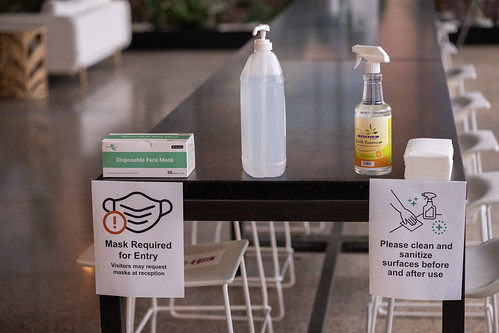Misogyny, hairdryers and foul-mouthed tirades: What we learned from Britain’s Covid-19 inquiry this week
Covid #Covid

London CNN —
Britain’s haphazard response to the coronavirus pandemic has been thrown under further scrutiny at an inquiry this week, after a series of senior figures described disorganization, chaos and vitriol at the heart of Boris Johnson’s government.
Johnson’s leadership was eviscerated by a number of his most important aides when the Covid-19 crisis struck, according to notes, emails and WhatsApp messages revealed at the inquiry this week.
Many of those aides testified at the inquiry, which began earlier this year.
The culture inside Downing Street has also been criticized, with correspondence laying bear the level of anger and in-fighting between major players.
And a deep level of confusion and uncertainty over the science of the virus’ spread – sometimes stretching into the territory of outlandish conspiracies – was alleged. More than 230,000 people have died of Covid-19 in the UK since it emerged in early 2020.
Here’s what you need to know from Britain’s Covid-19 inquiry.
Johnson’s premiership ultimately collapsed last year after a series of scandals, headlined by revelations that his staff organized a string of parties and gatherings while the UK was in lockdown.
But notes and communications unveiled this week revealed the depths of distrust at the heart of government.
“He changes strategic direction every day,” Simon Case, still Britain’s most senior civil servant, said in a remarkable message to Johnson’s chief of staff. “He cannot lead and we cannot support him in leading with this approach. The team captain cannot change the call on the big plays every day. The team can’t deliver anything under these circumstances.”
Meanwhile, Johnson’s chief scientific adviser, Patrick Vallance, described the ex-prime minister as being weak and indecisive in a notebook entry during the crisis, PA Media reported.
Johnson came in for brutal criticism from Dominic Cummings, his top adviser-turned-political rival who has lambasted the former leader since being dismissed from Downing Street in late 2020.
Cummings was particularly critical of Johnson’s apparent lack of understanding over the science of Covid-19 – alleging that he once asked whether people could use a hairdryer to “kill Covid.”
“A low point was when he circulated a video of a guy blowing a special hair dryer up his nose ‘to kill Covid’ and asked the (two senior scientific advisers) what they thought,” Cummings told the inquiry while giving evidence on Tuesday.
A message from March 3, 2020, sent by Cummings, said that Johnson didn’t believe Covid-19 was a “big deal and he doesn’t think anything can be done.”
Johnson was “unbelievably bullish” that Covid-19 would not severely hit the UK in early 2020, according to another top aide, then-deputy cabinet secretary Helen MacNamara.
Cummings was accused of fueling a misogynistic culture in Downing Street, after the inquiry revealed emails and WhatsApp messages from his time as Johnson’s top adviser.
In one WhatsApp message, Cummings complained about Johnson’s key team “dodging stilettos” from MacNamara, adding that he would “personally handcuff her and escort her from the building” and calling her a “c*nt.”
Cummings has denied his language was sexist, writing on Twitter Wednesday that the narrative is “bullsh*t from Boris/Carrie & the Establishment,” referring to the former prime minister’s wife.
But McNamara told the inquiry that the language was “miles away from what is right or proper or decent, or what the country deserves.”
And she blamed Johnson for failing to notice and stop it. “It was disappointing that the prime minister did not pick him up on that violent and misogynist language,” she said.
Messages showed that Cummings referred to other ministers and staffers as “useless f**kpigs” and “morons,” and pushed to have ministers sacked.
Matt Hancock, the UK’s former health secretary, wanted to decide “who should live and who should die” if the pandemic overwhelmed hospitals and forced decisions on where to direct care, according to the former chief of the National Health Service (NHS) England.
Simon Stevens told the inquiry on Thursday that Hancock “took the position that in this situation he – rather than, say, the medical profession or the public – should ultimately decide who should live and who should die,” adding that “fortunately, this horrible dilemma never crystallized.”
The allegation highlights a number of conflicting theories that circulated in government about where care and resources should be directed.
In August 2020, Vallance wrote that Johnson became “obsessed with older people accepting their fate and letting the young get on with life and the economy going,” the inquiry heard.
The UK’s current prime minister, Rishi Sunak, did not escape the week unscathed by the inquiry.
Sunak was chancellor (finance minister) during the pandemic, during which he rose from a newcomer to front line politics to a leading candidate to replace Johnson as Conservative Party leader and prime minister.
But his “Eat Out to Help Out” scheme, which offered incentives for diners to attend restaurants in the summer of 2020 after the first wave of Covid had subsided, was criticized by Lee Cain, Johnson’s former communications chief.
The scheme “made absolutely no sense whatsoever,” Cain said. Earlier in the inquiry, it was revealed that one of the government’s advisers referred to Sunak in a message as “Dr Death” over the scheme.